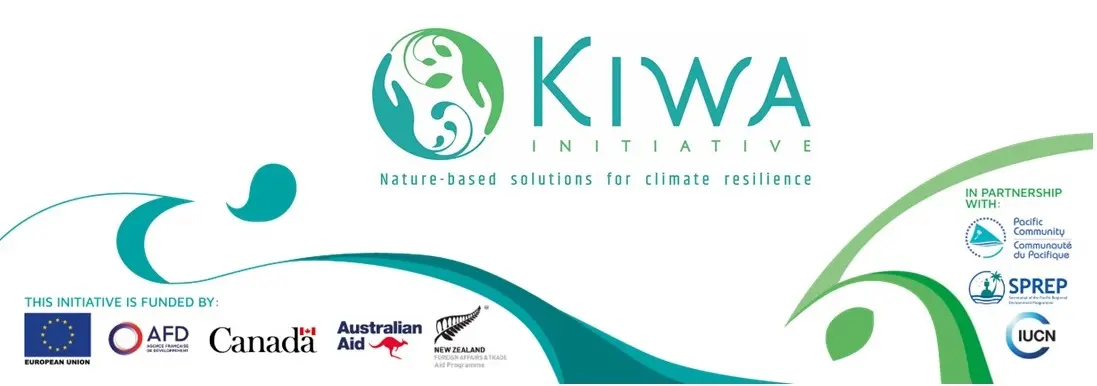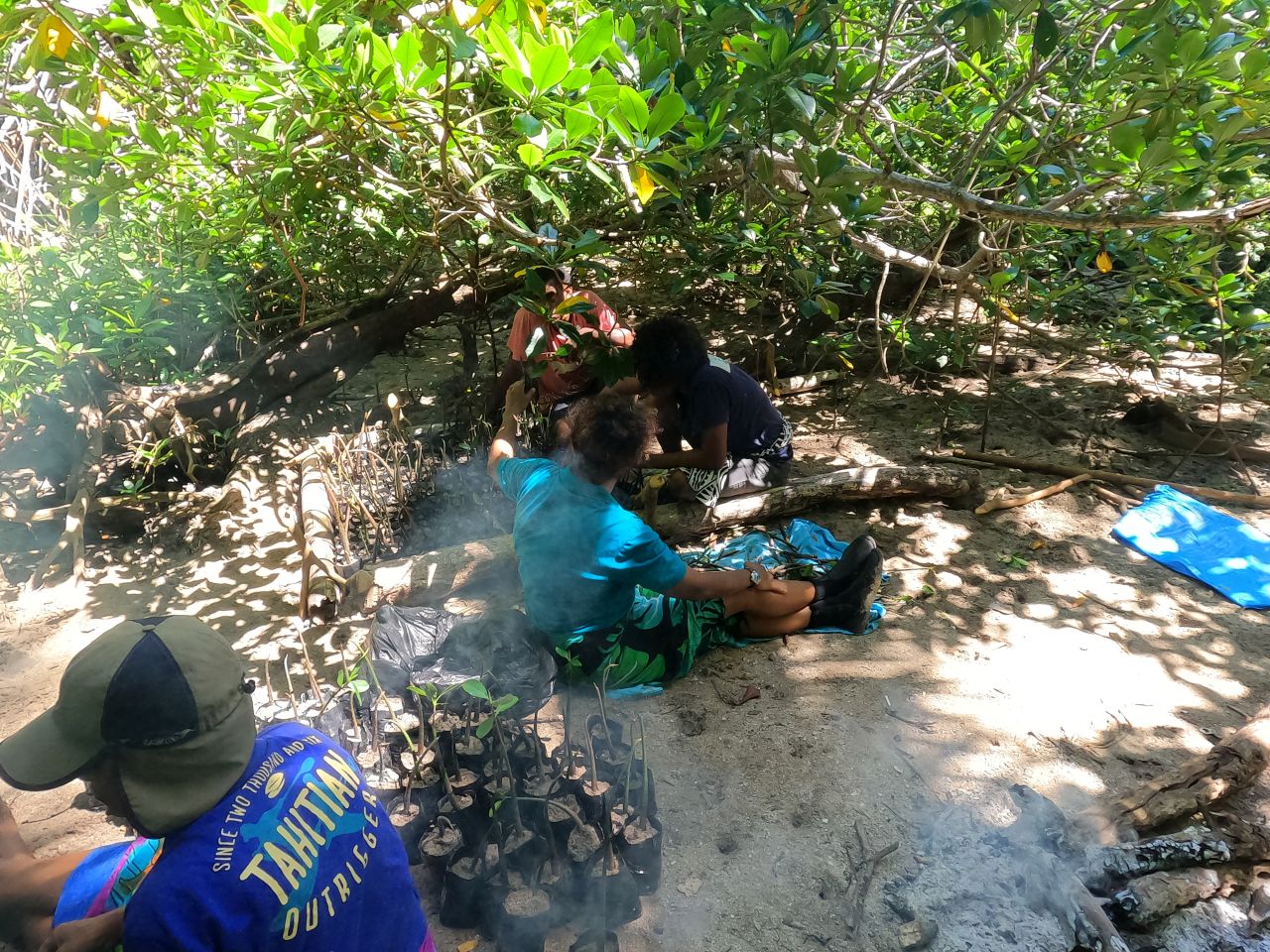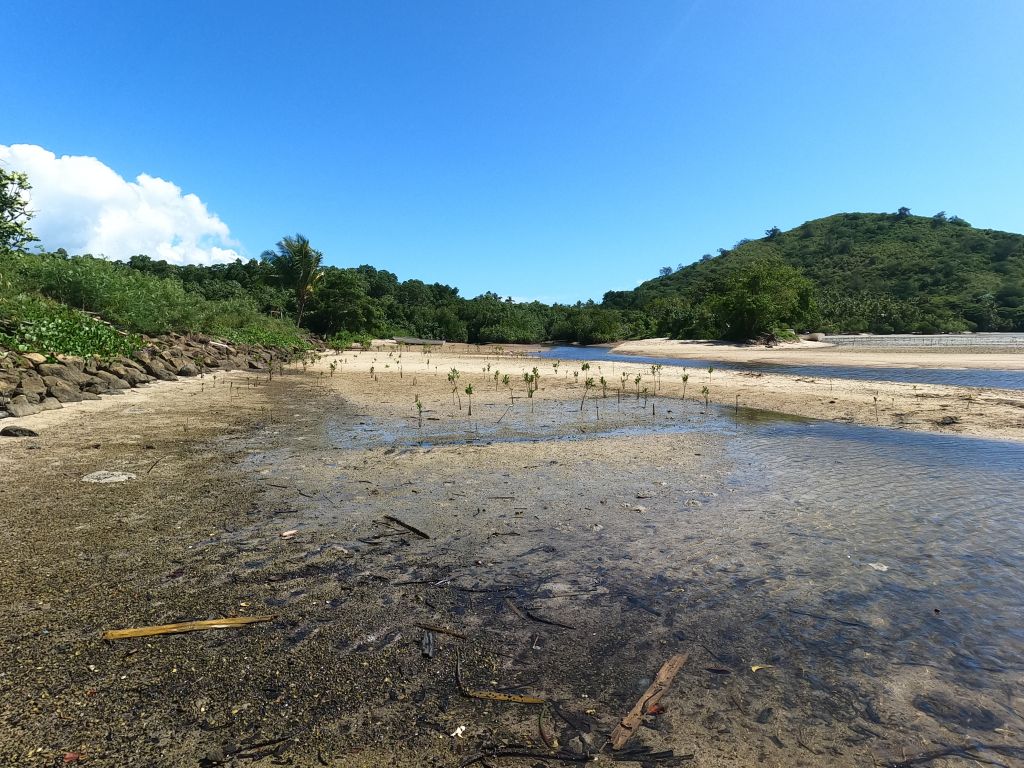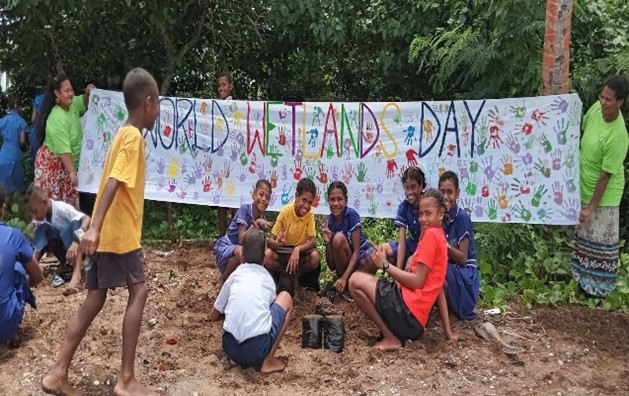C3’s LMMA project builds climate change resilience through trainings
Fiji, like many other low-lying Pacific islands, faces a host of threats to its communities and natural ecosystems due to climate change. These challenges impact both people and the environment in significant ways.
In response to these challenges, the Community Centred Conservation (C3) Fiji Kiwa Initiative project was launched, aiming to protect coastal communities by implementing Nature-based Solutions that enhance resilience and adaptability. The goal is to ensure that coastal communities in Fiji are safe from climate change effects by 2050.
The C3 project, titled "Restoring mangroves for livelihoods in Fiji,” has achieved remarkable milestones in its early stages. Among their accomplishments are identifying three target sites in Northern Vanua Levu—Raviravi, Naividamu, and Qaranivai—wherein each location is mandated to establish at least one functional, sustainable, mangrove-dominated Locally Managed Marine Area (LMMA) of at least 10 hectares.
Throughout the initial phases, C3 Fiji facilitated educational workshops focusing on efficiently managing LMMAs and actively engaging community members in the planning process. Adhering to their dedication to inclusion, at least half of the participants were women. Furthermore, in collaboration with involved communities, physical infrastructure for LMMA oversight was installed, featuring signage, clear boundaries, surveillance systems, and monitoring systems for effective management of these ecosystems.
Additionally, the project focused on training community members in mangrove restoration methods. At least 60 members were educated in mangrove restoration techniques, and mangrove areas were expanded via the planting of propagules and saplings grown in nurseries (at least 20,000 per site over 2ha). Restoration success was tracked every month, and appropriate measures were taken to deal with any emerging difficulties.
Another objective of the project was to raise awareness regarding the value of mangrove forests and LMMAs among at least 1,600 people in Macuata. Visibility activities were organised monthly, engaging at least 100 individuals per event. Five Community Conservation Ambassadors were selected and trained at each site to disseminate information concerning mangrove and marine ecology in a nature-based solution framework. Participants consisted of at least 50% females. Two livelihood projects linked to mangroves were executed at each site to increase earnings from mangrove-associated jobs.
Although the development of community management plans took longer than anticipated due to complete community consultations and approvals, the project made steady progress throughout the first reporting period. Aside from core tasks, the group assisted the Kiwa coordination team and sponsors on different site visits. For the upcoming reporting phase, the group intends to wrap up training and awareness materials, initiate replanting exercises, and carry out staff training in utilising drones for multi-spectral photography.
The Community Centred Conservation (C3) Fiji Kiwa Initiative project addresses over 500 inhabitants in three communities situated in Macuata, having collaborated with C3 for years and exhibiting strong motivation to engage in mangrove rehabilitation and protection as an efficient strategy for coping with climate change consequences.
The project is part of the Kiwa Initiative, financed by the European Union, Agence Française de Développement, Global Affairs Canada (GAC), Australian Government Department of Foreign Affairs and (DFAT) and New Zealand Ministry of Foreign Affairs and Trade (MFAT). Their combined goal is protecting resources, reinforcing coastal defences, and strengthening resilience of communities in the Oceania region. The Kiwa Initiative has established partnerships with the Pacific Community (SPC), the Secretariat of the Pacific Regional Environment Programme (SPREP) and the Oceania Regional Office of the International Union for Conservation of Nature (IUCN).




